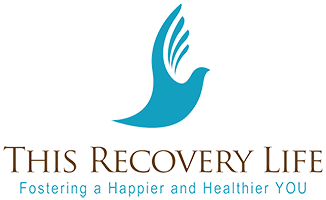
Transitions: YOUR Next Step
There will come a point that it will be time to move on.
Detox is not quite a day at the spa. Usually, they’re pretty drab institutional settings, but they may be the kind of life saver that may be available at that moment.
It’s not uncommon that people go to detox and then continue using their substance of choice shortly after. Sweating profusely through the night while being in constant physical pain for a few days is enough mental anguish to make anyone want to run out the door before getting to the other side of it.
The thing is that if someone leaves before this process is complete, it is likely that they will (hopefully) find themselves in a similar place, likely wishing they had completed detox the last time they were there.
For those who have experienced withdrawal from most substances, immense uncomfortability, insuppressible cravings and pain so great all point back to using as the most logical of solutions. Relief just can’t come fast enough.
This epitomizes the definition of a vicious cycle.
So if you find yourself in detox or contemplating detox, I encourage you to make it through to the other side. The unknown here may just have other opportunities awaiting you.
Depending on your situation, you may chose to go to an inpatient program, maybe a 30 day program where you will be in a safe space, possibly under medical supervision, to address your recovery without the interference of the outside world.
Some people may need a longer time to work on improving their health and enter a 6 month or year long program where living with other individuals also working on their recovery becomes a key element to assist in creating awareness and fostering wellness. A built in community is another facet that can make inpatient programs desireable.
I’ve been working with a women’s program for the past three and a half years. People come in straight out of detox, beaten up by themselves, broken by the streets .Then slowly, their color changes. They start to glow again as they grow into this cohesive unit, a sisterhood that has now cultivated their self esteem.
Same happens in the men’s homes. It’s truly a beautiful thing to experience. More often than not, you can catch me smiling in the corner of the room as I admire resiliency in action. People do recover.
And then they “graduate”. Their environment has been controlled for the most part and safety has been taken care of by program staff.
Returning to one’s old environment comes with a whole new set of challenges.
You’ve been working so hard on yourself and now your sibling is still having a party around you with his friends, your mom’s pills are still in the medicine cabinet and your uncle is asking why you can’t “just have a beer”.
Some people may continue onto outpatient programs, which usually consist of a few weekly sessions with a counselor or a group while living at home.
Inpatient programs are not for everyone. There may not even be a need for detox or inpatient programs and you may just want to participate in an outpatient program.
Regardless of what kind of program you choose to do or not to do, guidance and support can be of utmost importance. The more supports you have in the different areas of your life, the more sustained and higher quality recovery can be. This is called Recovery Capital.
I remember when I was told that my program was over. I had spent four years in outpatient, had a counselor, a therapist, and participated in multiple employment and relapse prevention programs. Now, a good chunk of my support system was about to get pulled from under me. My health insurance was about to be gone, my food assistance was about to be gone and all because I was actually hired for a job. How about that!?
Life can be funny at times. Luckily, you also get to laugh in recovery.
I had to ramp up my support at such a fragile time. Even when things were going so well and change was happening due to wonderful things, vulnerability stood beside me once again.
So I’m talking about all of this with transitions in mind. When leaving the detox, support can help you take that next step in your recovery. When leaving the inpatient program, support can guide you to learning how to process all of the work you did in the program and implement it in your own environment. While in the outpatient program, support can connect you with other services that you may need. When maintaining your recovery, support can walk alongside you and expand your horizons while giving you the tools to bring the recovery you desire to fruition.
Maybe you didn’t reach that point of losing your job, the house, your family, your car… and would like the guidance of someone who’s walked in your shoes, understands what you may be going through and helps your find your motivation to explore your new found world.
There is no one way. There will never be one person or thing that will provide all of our needs. At different times, we will need different things. I always like to think that I need everyone, as you never know where that next charge to propel you forward will come from.
How can you best prepare so that the next transition in your life can be a successful one?
All you have to do is decide. Get ready. Pick one path and take that next step into action. Love Life Today. THiS ReCoVeRY LiFE.

Recent Comments